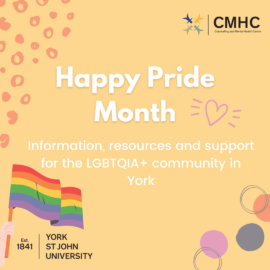For this week’s self-care Sunday, we’re going to look at some of the types of self-care there are. Self-care covers a range of areas, so we thought we would focus on just six of the main ones; Practical, Physical, Mental, Social, Spiritual, and Emotional. Prioritising our self-care is important, and if we can, we can do what we can to improve these areas, and in doing so, our mental health and wellbeing. As we mentioned before, self-care can look different for everyone, but to help start us off thinking about what we can incorporate into our daily lives, we’ve listed some suggestions and things to think about below:
Practical | This involves activities to ensure that some of our life’s living basics are covered, to help avoid situations that may cause us stress. Some examples would be organising things in the home or your personal admin, creating budgets for your finance, meal prepping, and organising your email inbox.
Physical | This would be activities that improve your physical health and wellbeing. Certain things you could start to include in your weekly routine could be; going for a short walk in your lunch break, ensuring you have enough sleep (if you can) or having a nap, drinking enough water and staying hydrated and eating a diet that makes you feel good within your body.
Mental | Activities that help to stimulate your mind and keep it sharp! This is anything from reading (or listening) to a book, working on puzzles, visiting a museum, learning about a topic that interests you, watching documentaries of TV/Film that fuels your mind or inspires you in some way, and playing strategy games such as chess.
Social | Socialising and connecting with people can be key to our self-care and wellbeing, people can help to fill up our cups! It can go the other way though, so keep in mind that we can say no to people, and have personal boundaries to ensure we don’t exhaust ourselves. We all have different social needs to this should be tailored to you – what makes you feel good, and fills you up? Ways to nurture your social self-care, and deepen your relationships and connections could be arranging brunch dates with friends, calling family/friends regularly for check ins, being able to say no to social events if you’re not feeling up for it, having people to speak to when you need it and asking them first, and being able to ask family/friends not to share their problems with you if you’re not able to take it on at that time, but advising you can speak to them at another point if you can/want.
Spiritual | Spiritual self-care doesn’t have to be religious, although for some people it will be. It’s about engaging in fulfilling activities that nurture our spirit and helps us to develop a deeper sense of meaning and connection with ourselves and the world. Spiritual self-care activities can look like meditation, yoga, being out in nature, visiting a place of worship and taking time to self-reflect.
Emotional | Emotional self-care is about developing healthy coping skills to help you better understand and connect to uncomfortable emotions such as sadness, anxiety and anger, and being able to process and reflect on these. Activities to help with this would be things such as seeing a therapist or coach, speaking to friends, writing in a journal, being creative as a way of processing and expressing your emotions, or other leisure activities that help to do this. How do you, and can you process your emotions?
We would love to hear what other ways you prioritise yourself and look gift yourself some needed self-care?



